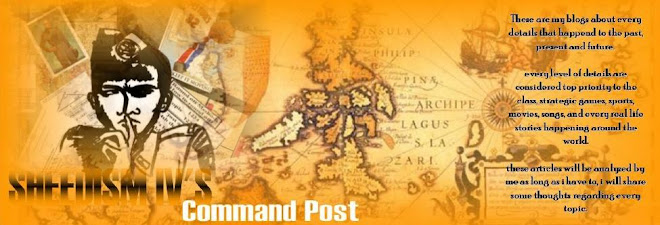Criticism
Attempts to debunk legends surrounding Rizal, and the tug of war between free thinker and Catholic, have served to keep him a living issue. While some leaders, Gandhi for one, have been elevated to high pedestals and even deified, Rizal has remained a controversial figure. In one recorded fall from grace he succumbed to the temptation of a 'lady of the camelias.' The writer, Maximo Viola, a friend of Rizal's, was alluding to Dumas's 1848 novel, La dame aux camelias, about a man who fell in love with a courtesan. While the affair was on record, there was no account in Viola's letter whether it was more than a one-night event and if it was more of a business transaction than an amorous affair
Others present him as a man of contradictions. Miguel de Unamuno in "Rizal: the Tagalog Hamlet", said of him, "a soul that dreads the revolution although deep down desires it. He pivots between fear and hope, between faith and despair."
His critics assert this character flaw is translated into his two novels where he opposes violence in Noli and appears to advocate it in Fili, contrasting Ibarra's idealism to Simoun's cynicism. His defenders insist this ambivalence is trounced when Simoun is struck down in the sequel's final chapters, reaffirming the author's resolute stance, Pure and spotless must the victim be if the sacrifice is to be acceptable.
In the same tenor, Rizal condemned the uprising when Bonifacio asked for his support. Bonifacio, in turn, openly denounced him as a coward for his refusal.
Rizal believed that an armed struggle for independence was premature and ill-conceived. Here Rizal is speaking through Father Florentino: ...our liberty will (not) be secured at the sword's point...we must secure it by making ourselves worthy of it. And when a people reaches that height God will provide a weapon, the idols will be shattered, tyranny will crumble like a house of cards and liberty will shine out like the first dawn.
Rizal never held a gun or sword in the battlefield to fight for freedom. This fact leads some to question his ranking as the nation's premier hero, with a few who believe in the beatification of Bonifacio in his stead. In his defense, the historian, Rafael Palma, contends that the revolution of Bonifacio is a consequence wrought by the writings of Rizal and that although the sword of Bonifacio produced an immediate outcome, the pen of Rizal generated a more lasting achievement.
His Legacy
 Rizal's advocacy of institutional reforms by peaceful means rather than by violent revolution makes him Asia's first modern non-violent proponent of political reforms. Forerunner of Gandhi and contemporary of Tagore and Sun Yat Sen, all four created a new climate of thought throughout Asia, leading to the attrition of colonialism and the emergence of new Asiatic nations by the end of World War II. Rizal's appearance on the scene came at a time when European colonial power had been growing and spreading, mostly motivated by trade, some for the purpose of bringing Western forms of government and education to peoples regarded as backward. Coinciding with the appearance of those other leaders, Rizal from an early age had been enunciating in poems, tracts and plays, ideas all his own of modern nationhood as a practical possibility in Asia. In the Noli he stated that if European civilization had nothing better to offer, colonialism in Asia was doomed.
Rizal's advocacy of institutional reforms by peaceful means rather than by violent revolution makes him Asia's first modern non-violent proponent of political reforms. Forerunner of Gandhi and contemporary of Tagore and Sun Yat Sen, all four created a new climate of thought throughout Asia, leading to the attrition of colonialism and the emergence of new Asiatic nations by the end of World War II. Rizal's appearance on the scene came at a time when European colonial power had been growing and spreading, mostly motivated by trade, some for the purpose of bringing Western forms of government and education to peoples regarded as backward. Coinciding with the appearance of those other leaders, Rizal from an early age had been enunciating in poems, tracts and plays, ideas all his own of modern nationhood as a practical possibility in Asia. In the Noli he stated that if European civilization had nothing better to offer, colonialism in Asia was doomed.Such was recognized by Gandhi who regarded him as a forerunner in the cause of freedom. Jawaharlal Nehru, in his prison letters to his daughter Indira, acknowledged Rizal's significant contributions in the Asian freedom movement. These leaders regarded these contributions as keystones and acknowledged Rizal's role in the movement as foundation layer.
Rizal, through his reading of Morga and other western historians, knew of the genial image of Spain's early relations with his people.
Rizal, through his reading of Morga and other western historians, knew of the genial image of Spain's early relations with his people.
In his writings, he showed the disparity between the early colonialists and those of his day, with the latter's atrocities giving rise to Gomburza and the Philippine Revolution of 1896. His biographer, Austin Coates, and writer, Benedict Anderson, believe that Rizal gave the Philippine revolution a genuinely national character; and that Rizal's patriotism and his standing as one of Asia's first intellectuals have inspired others of the importance of a national identity to nation-building.
Although his field of action lay in politics, Rizal's real interests lay in the arts and sciences, in literature and in his profession as an ophthalmologist. Shortly after his death, the Anthropological Society of Berlin met to honor him with a reading of a German translation of his farewell poem and Dr. Rudolf Virchow delivering the eulogy.
 The Taft Commission in June 1901 approved Act 137 renaming the District of Morong into the Province of Rizal, and Act 346 authorizing a government subscription for the erection of a national monument in Rizal's honor. Republic Act 1425 was passed in 1956 by the Philippine legislature that would include in all high school and college curricula a course in the study of his life, works and writings. The wide acceptance of Rizal is partly evidenced by the countless towns, streets, and numerous parks in the Philippines named in his honor. Monuments in his honor were erected in Madrid, Spain, Wilhelmsfeld, Germany, Jinjiang, Fujian, China, Chicago, San Diego, and Seattle, U.S.A., and many poetic titles were bestowed on him: "Pride of the Malay Race," "the First Filipino", "Greatest Man of the Brown Race," among others. The Order of the Knights of Rizal, a civic and patriotic organization, boasts of dozens of chapters all over the globe.
The Taft Commission in June 1901 approved Act 137 renaming the District of Morong into the Province of Rizal, and Act 346 authorizing a government subscription for the erection of a national monument in Rizal's honor. Republic Act 1425 was passed in 1956 by the Philippine legislature that would include in all high school and college curricula a course in the study of his life, works and writings. The wide acceptance of Rizal is partly evidenced by the countless towns, streets, and numerous parks in the Philippines named in his honor. Monuments in his honor were erected in Madrid, Spain, Wilhelmsfeld, Germany, Jinjiang, Fujian, China, Chicago, San Diego, and Seattle, U.S.A., and many poetic titles were bestowed on him: "Pride of the Malay Race," "the First Filipino", "Greatest Man of the Brown Race," among others. The Order of the Knights of Rizal, a civic and patriotic organization, boasts of dozens of chapters all over the globe. There are some remote-area religious sects who claim him as a sublimation of Christ.








1 comment:
I consider Rizal as the only true hero in the Philippines since his works and death brought a huge impact in the Philippine revolution and independence. Though yeah, it's true that he's a womanizer, but he's just human right? He's not Gandhi, and definitely not Jesus Christ.
Post a Comment